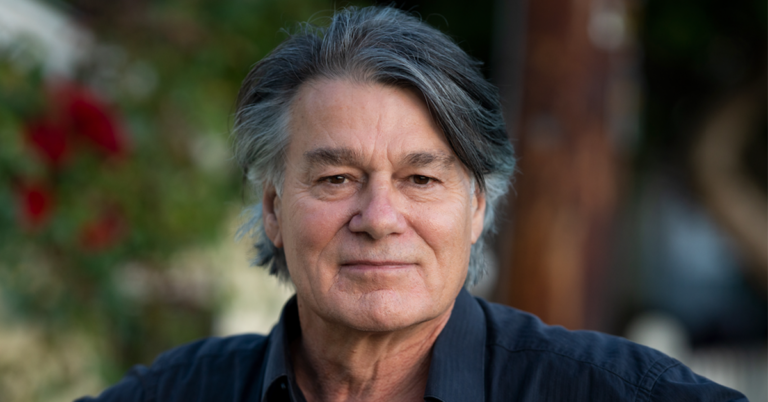
Image by Patrick Pierre, Public Domain Dedication (CC0).
What Does it Mean to Be a Man?
I can recall the first time that I asked the question, “What does it mean to be a man?” to a group of young men I was doing healing work with. In this particular situation, the young men were sharing their feelings about an exercise that each of them had just experienced, focused on the misogyny, sexism, and patriarchy that women often face in society.
Many of the young men shared that they immediately wanted to cry after the experience. Upon asking them why it seemed that they were emotionless during the exercise, they shared that they didn’t allow themselves to exhibit such emotions because they needed to be strong for the other men in the group. The phrasing of “needing to man up” was used over 50 times, so much that I was not only exhausted, but perplexed.
It wasn’t the first time I had heard the term “man-up” being used to describe the need that young men have to hide their emotions. I had been told to “man-up” by a family member after I said I didn’t want to play football (or any sport really). I was also told that I needed to “man-up” after I found out my best friend died in the 9th grade and again after I experienced my first rejection letter to college.
I hear the phrase “man-up” used so frequently, I often wonder in what context the word “man” is being used and what it really says about how society views masculinity as a whole.
For years, I have grappled with this idea of maleness and masculinity from both a social and political lens. Society rarely provides space for men to be whole. Consider the “idea” of what it means to be a man in our society. When we define maleness, or masculinity, we are quick to assume that to be a man means being aggressive, loud, violent, and dominant. Even more, maleness and masculinity is often defined by one’s gender, their gender presentation, and how they perform maleness and masculinity. Something that I have always found to be disturbing is how much of maleness and masculinity depends on one’s genitals and what cis-gender men choose to do with said parts (and who they choose to do it with).
A common notion that is often not discussed when examining men and masculinity is how much emphasis is put on the performative aspect of being a man.
Very rarely are cis-men given space to interrogate and create a their own definition of masculinity that includes being emotionally/mentally sound and whole. Men often have to look outside of themselves for their first definition of what it means to be a man, so much so that it often leaves men in a dark and sad state of existence.
From sports to the playground, masculinity is coded with phrases like “boys will be boys” or my personal favorite, “that’s just how boys/men are.” The emotionally damaging “masculinization” of young men starts even before young men have a keen sense of self; often before they even have the developmental capacity to fully understand the binary (gender vs. performance of gender.) These gender roles and expectations of gender performance are often given out like candy, without a child being able to fully comprehend what they’re ingesting.
This notion that to be a man means being angry or emotionally unavailable has always been something that intrigued me. As both a queer and Black man, I often question where these ideas began and why people continue to hold them in such high regard. As I continue to battle with the true definition of what it means to be a “man” and how heteronormative (and homonegative) the definition continues to be, I recognize that the toxic notion of masculinity is forced on young cis-men before they even know how to properly tie their shoes.
I can remember hearing conversations between my mother and my uncles about how fearful they were for me because I didn’t exhibit the behaviors of masculinity. I was emotionally available, somewhat shy, and enjoyed connecting with people on a deeper level. Somehow, that was seen as effeminate and the men in my family worked tirelessly to “make me harder,” common rhetoric used in the Black cis-male community.
It behooves me to say that the root definition of what it means to be a man or to perform masculinity here in America continues to be grounded in oppression, marginalization, and white supremacy. As I have done my own work to unlearn the toxic nature of masculinity, I now comprehend that the harm being done to many young cisgender men, specifically young white cisgender men, is often connected to noxious ideals of power, positionality, and the want/need for cisgender men to be seen as a dominant gender. I am even more certain of this with the reports of gun violence transfixing us here in the U.S.
In challenging masculinity as a harmful and sometimes deadly social construction, we have to acknowledge that being viewed in society as masculine is reputed as a gift, while being viewed as feminine is a curse. Even with all of the negative ideologies of maleness and masculinity that cisgender men (and society) consume, being seen as a “man” means being free from critique and the need to unlearn elements of sexism and patriarchy, even in moments when you are the reason for someone else’s struggle and pain.
Films like The Mask You Live In and Tough Guise 2 examine the concept of performative masculinity and shine light on the lack of accountability that comes with maleness. They examine how young men are wired to “wage war” from a young age and encouraged to lean into concepts related to social dominance hierarchies. Cis-men, specifically cis-heterosexual men, are encouraged to take up any and all space, without questioning whether they are fully deserving of it.
A struggle that I have had as a queer cis-man of color is comprehending what maleness and masculinity means for me. I have never presented myself as a masculine. My voice is soft, I have always been called “pretty,” and I am highly emotional — all things associated with femininity.
Though I have every right to be an aggressively violent person because of the things I have experienced as a queer Black man, I have chosen to unlearn maleness and masculinity as something ferocious. In my quest to redefine maleness and masculinity, I have started to understand that being a man means doing a great deal of self work.
My definition of “being a man” challenges me to speak openly and honestly about my thoughts and feelings. It’s relearning how to speak from a truly genuine and unapologetic place. It’s seeking out regular psychological therapy — something that many cis-men, specifically cis-Black men are taught not to do. But most important, it’s knowing how to be honest with myself about about where my pain and trauma begin and working through it to heal.
Before challenging others to learn what it means to “man-up,” I would challenge everyone to unlearn what it means to be a man in our society and find a definition that allows cis-men to be happy, whole people. We must teach men not to see maleness and masculinity as superior to femininity, but dangerous without it. We must engage men to stop seeing their maleness and masculinity as being something that they should fear, while encouraging them to embrace their full authentic truth.
It is only then that we can truly create a healthier definition of what it truly means to be a man.


Share your reflection